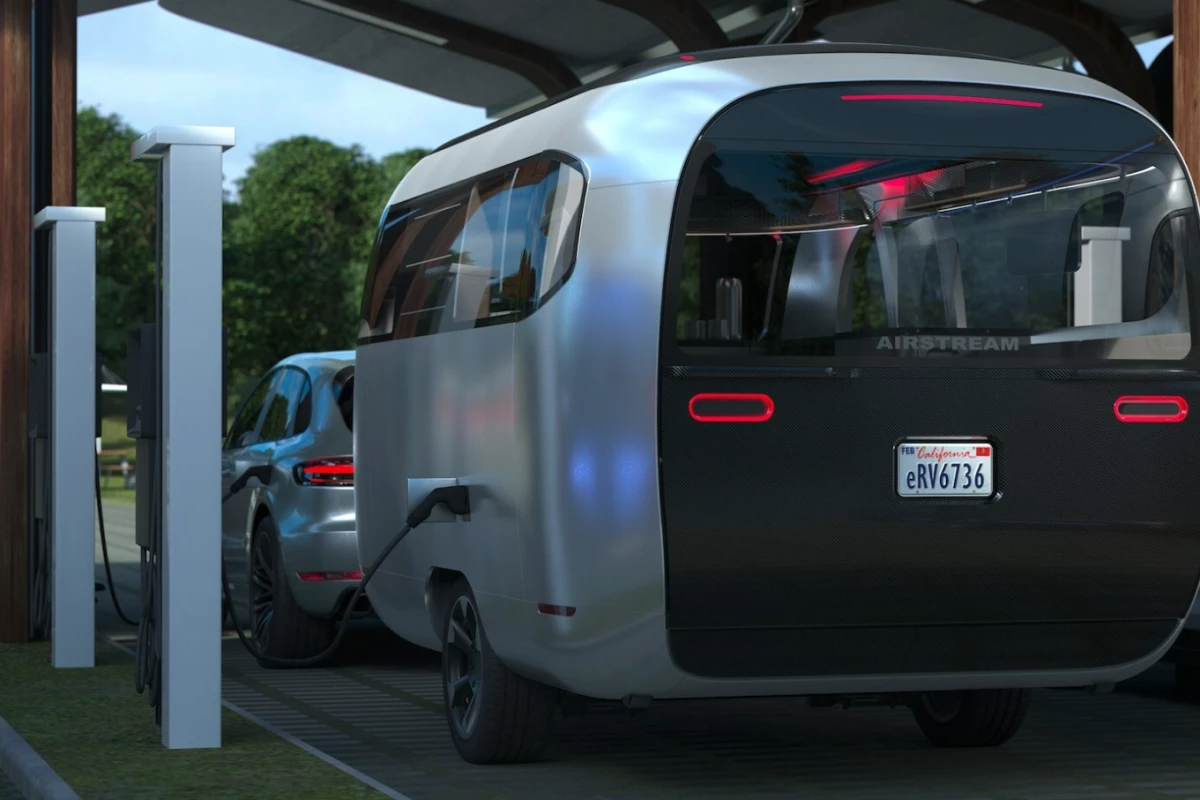Global RV manufacturer Thor Industries has been preparing for the electric vehicle age for years, probably better than some automakers. Its work has included not only recent concepts like the Vision Vehicle fuel cell motorhome and Airstream eStream self-driving electric travel trailer but earlier forays into gas-free electric design, such as the solar-powered KZ Sonic X off-grid trailer and generator-free Tuscany Class A motorhome. Now it's applied that same visionary spirit to a charging station concept designed specifically for electric motorhomes, trailers and tow vehicles.
RVing is already one of the tougher use cases for electric vehicle technology, given the focus on large, heavy, power-hungry vehicles aimed at long-mileage road trips. A less-explored obstacle facing electric RVs is charging. Unlike electric everyday drivers that can stay within range during the daily commute and charge at home, RVs are made for traveling far beyond single-charge mileages and, therefore, quite likely to spend time at public charging stations. And while any old parking lot charger can hook up a Tesla Model 3, not every one will readily accommodate a 40-foot-long (12.2-m) Class A motorhome or HD pickup truck pulling a fifth-wheel.
This week, Thor presented 3D renderings of an RV-specific charging station aimed at everything from today's compact EV tow vehicles pulling small trailers to the large, stretched-chassis all-electric Class A motorhomes that won't be a practical, marketable reality for years to come.
Much like the pull-through gas pumps that line a highway rest stop, Thor's design focuses on long pull-through charging ports shaded by solar panel-covered roofs. Each charging lane is equipped with multiple chargers to accommodate several electric camper vans or one or two large Class A motorhomes. Thor's chargers include dual cords so that drivers can power up multiple vehicles, simultaneously charging a fully electric travel trailer and tow EV, for example. The design also includes separate parking space chargers for regular EV passenger cars, helping to make charging more efficient for all drivers.

Thor's design facilitates quick, hassle-free entry and exit with a large, wide driveway with direct access points from the main road. The aisles at the ends of the charging lanes are optimized for wide turns and easy maneuvering, encouraging the fastest, most efficient use of the facility.
The Thor station also blends in with its natural surroundings, keeping nature and outdoor living a focus. The charging station includes a picnic area, playground equipment, fitness area, dog run and plenty of greenery, looking as much like a city park as a charging area. Thor uses the outdoor-focused design to differentiate its facility from the average gas station. Other amenities include restrooms, an RV dump station, a water filling station and an air pump for tires.

Thor renders its station on the side of a secondary road, stressing the need for charging facilities beyond cities and interstate highways, such as state highways leading to national and state parks and forests. We'd say the design would feel quite at home adjacent to or even inside a park or forest, no more a disruption than the typical parking lot or information center.
"Electrified transportation will play a central role in the future of RVing as e-RVs become available for purchase and more people opt to pull a traditional or electrified travel trailer with an electric tow vehicle," said Thor Industries president and CEO Bob Martin. "We designed this concept to provide states and rural communities a better understanding of the infrastructure needed near parks, destination towns and other popular destinations to retain the tremendous economic benefits future RV travelers will offer."
Toward that end, Thor is also supporting the US RV Industry Association's efforts to promote investment in e-RV-ready charging stations at the state and federal levels. The two parties recently commissioned a white paper as part of a lobbying effort to persuade states to direct some of the US$7.5 billion of currently available federal EV funding toward e-RV-compatible pull-through chargers.
Source: Thor Industries





